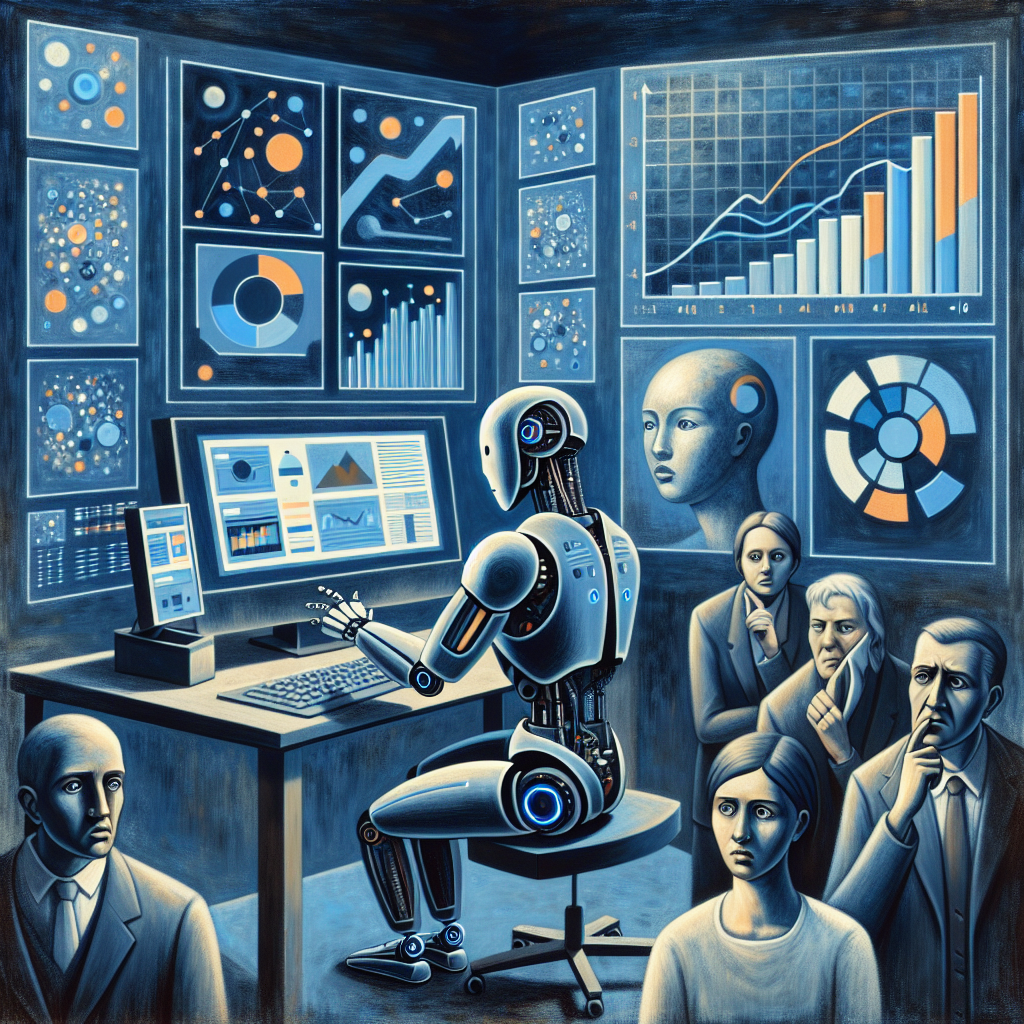Artificial General Intelligence (AGI) is a term that refers to machines that possess the ability to understand, learn, and apply knowledge across a wide range of tasks or domains. Unlike narrow AI, which is designed to perform specific tasks, AGI has the potential to replicate human-like cognitive abilities, including reasoning, problem-solving, and creativity. As AGI technology continues to advance, there is a growing concern about its impact on the future of work. Will humans be replaced by intelligent machines? In this article, we will explore the potential implications of AGI on the workforce and address some common questions and concerns.
The Rise of AGI and Its Implications for the Future of Work
The development of AGI has the potential to revolutionize the way we work and live. Intelligent machines could automate a wide range of tasks, from routine administrative work to complex decision-making processes. This could lead to increased efficiency, productivity, and cost savings for businesses. However, the widespread adoption of AGI also raises concerns about job displacement and the future of work.
One of the main concerns surrounding AGI is the potential for widespread job loss. As intelligent machines become more capable of performing tasks traditionally done by humans, there is a fear that many jobs could be automated out of existence. According to a report by the McKinsey Global Institute, up to 800 million jobs worldwide could be displaced by automation by 2030.
Another concern is the impact of AGI on income inequality. As automation displaces workers in certain industries, there is a risk that income disparities could widen, with skilled workers benefiting from the new technology while low-skilled workers are left behind. This could exacerbate social and economic inequalities, leading to greater societal unrest.
Despite these concerns, there are also potential benefits to the adoption of AGI in the workforce. Intelligent machines could free up human workers to focus on more strategic, creative, and value-added tasks. This could lead to increased job satisfaction, innovation, and overall economic growth. Additionally, AGI could open up new opportunities for workers to reskill and upskill in emerging fields, such as artificial intelligence, machine learning, and robotics.
FAQs
Q: Will AGI replace all human jobs?
A: While AGI has the potential to automate a wide range of tasks, it is unlikely to replace all human jobs. Certain tasks, such as creative problem-solving, emotional intelligence, and interpersonal communication, are difficult for machines to replicate. Instead, AGI is more likely to augment human workers, allowing them to focus on tasks that require human ingenuity and judgment.
Q: How can workers prepare for the rise of AGI?
A: Workers can prepare for the rise of AGI by developing skills that are difficult for machines to replicate. This includes skills such as critical thinking, creativity, emotional intelligence, and adaptability. Workers should also be open to lifelong learning and be willing to reskill and upskill in response to changing job demands.
Q: What role should policymakers play in addressing the impact of AGI on the workforce?
A: Policymakers have an important role to play in addressing the impact of AGI on the workforce. They can implement policies that promote job training and reskilling programs, support displaced workers, and ensure that the benefits of AGI are shared equitably. Policymakers should also work with industry leaders to develop ethical guidelines for the use of AGI in the workforce.
Q: How can businesses leverage AGI to improve productivity and innovation?
A: Businesses can leverage AGI to improve productivity and innovation by integrating intelligent machines into their operations. This could involve automating routine tasks, optimizing decision-making processes, and developing new products and services that capitalize on the capabilities of AGI. Businesses should also invest in training their workforce to work alongside intelligent machines and leverage their unique strengths.
In conclusion, AGI has the potential to revolutionize the way we work and live. While there are concerns about the impact of AGI on job displacement and income inequality, there are also opportunities for increased efficiency, productivity, and innovation. By preparing for the rise of AGI and developing the necessary skills and policies to adapt to this new technology, we can ensure that humans and intelligent machines can work together to create a more prosperous and equitable future.

